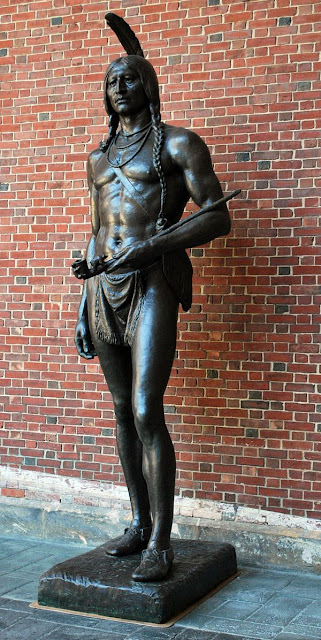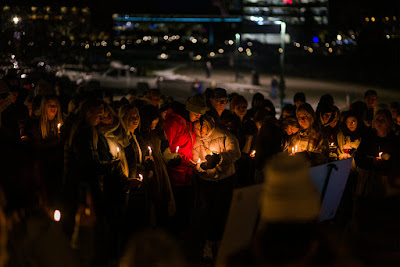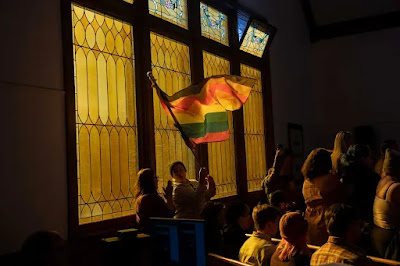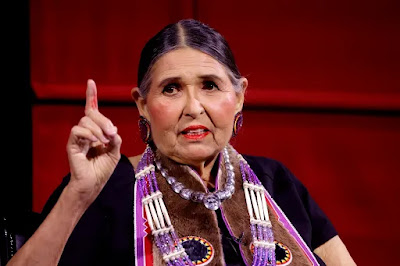All morning we waited, the January air frigid and clear,
"Come see," I said, pointing at the tv. You settled your
not-quite 3-year-old body beside me on the corduroy couch,
my belly swelling with your little brother not yet born.
You were my playmate, usually you told me who to be,
sometimes you were Robin Hood and I was Maid Marian,
mostly we were Luke Skywalker and Princess Leia,
but that day I called you the first spaceman, John Glenn,
I was the first space woman, Christa McAuliffe, I pronounced,
my teacher heart swelling, and then, you were leading me
by the hand, into the capsule, we were waving to school children
gathered to see the launch and even Tom Brokaw seemed
to have his heart on his sleeve when he introduced
mission control for the countdown, the lift off.
On our couch from a mountaintop in West Virginia,
surrounded only by the universe, we could almost see
the Challenger capsule heading to that place beyond the sky,
except, a jagged fork, that looked wrong, and then
the waving stopped, hands covered mouths, children stood
in silence, and you looked up at me for answers
I did not have. I'm sorry, I wanted to say. I'm sorry
I called you over to watch with me, that you had
to see this. Again and again, the tv replayed the lift off,
as if, if they showed us once more, it would go differently.
But no, the small streak of light, the speck of fire. Sometimes it takes
so long to figure out what I want to tell you, even longer to know
which words to use, and now, 35 years later, deep-sea divers find
sets of Challenger tiles on the ocean floor, like pennies dropped
into an infinite well. Oh, my boy, now man, now father,
sometimes what you long for will disappoint you, and sometimes
what you love will rise because of your love, and you'll rise too.
All afternoon, on our little speck of earth, death walked
beside us, his index finger waggling, a broken branch,
and we did the only thing we could, we walked down the lane,
gathered warm eggs from the hens, picked up limbs the wind
had flung onto the road, all eyes scanning the empty sky for signs










